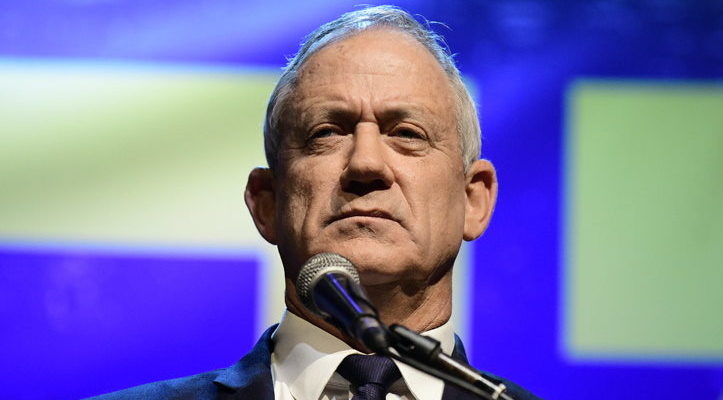As the Joint List agrees to endorse Gantz, it’s worth looking back at the days of Yitzhak Rabin, the only other time an Israeli government relied on Arab MKs for its majority.
By World Israel News Staff
The Joint List has agreed to endorse Blue and White leader MK Benny Gantz for prime minister. If he succeeds in now forming a government, it means that his coalition would rely on Arab Knesset members for its majority.
It is part of the dilemma that makes up the fabric of Israeli society: the Jewish State and a democracy at the same time.
There is a greater acceptance of Arab MKs who belong to Zionist parties, but non-Zionist Arab MKs have never been an official part of a government coalition. There has never been someone from one of these parties who was a cabinet minister.
The dilemma has not only been manifest on the ministerial level, but also over whether such an MK should be a member of a Knesset Foreign Affairs and Defense subcommittee that discusses classified security information.
When MK Ayman Odeh, the leader of the Joint List – a merged faction of predominantly Arab non-Zionist parties – said in August during the election campaign that he would consider joining a Gantz-led government, Gantz rejected it outright.
In the past, Arab parties have shunned Israeli governments and vice versa. From the Arab side, it might be interpreted as acceptance of Israel as a Jewish state. From the Jewish side, it would mean relying of those hostile to Zionism to govern. It also opens the possibility that an anti-Zionist would hold an important cabinet portfolio.
Odeh and his Joint List have now voiced readiness to endorse Gantz as prime minister, if not to join him in a government.
The current situation has taken Israelis back to 1992. Labor’s Yitzhak Rabin unseated the Likud, the same feat that Gantz would like to accomplish in 2019.
That Knesset election took place on June 23. Rabin presented his government on July 13, coinciding with the inauguration of the new parliament.
Following the fiasco of the April 2019 election when no government was formed and Israelis went back to the polls in September, the 1992 scenario of forming a coalition relatively quickly and smoothly seems likes a distant dream.
In those election results, Labor won 44 seats and Meretz achieved a result of 12 places in the 120-member Knesset.
Rabin nearly had a majority just between the two of them.
Shas, a religious party with six seats, would also join the coalition and the majority was achieved.
However, Shas later resigned from the coalition over the Oslo process with the Palestinians, named for the Norwegian capital where secret talks had taken place before the process became public late in the summer of 1993.
Though not required by law to maintain a majority, a government has great difficulty operating without one.
To solve that problem for as long as necessary, Rabin took advantage of the support of Arab MKs for the Oslo process and his government’s reputation as supportive of the Israeli Arab sector to reach an agreement with non-Zionist MKs from Hadash and the Arab Democratic Party.
These parties never became official members of the government coalition. They did not receive cabinet positions. However, they provided a safety net, supporting the government “from the outside,” as they would say, as long as the Rabin government promoted the process with the Palestinians and supported the Israeli Arab sector.
It was a tumultuous time that also included a breakaway by MKs from a right-wing party who joined the Rabin government, receiving a ministerial and deputy ministerial position.
Fast forward to 2019: For many Israelis, the possibility of a Blue and White-led government relying on an Arab party carries the bitter taste of the memories of horrific Palestinian terrorist attacks which were carried out during the time of implementation of the Oslo process.
If there is some agreement “from the outside” it would not be an unprecedented move. If non-Zionist MKs officially join the government; it would be unprecedented.





